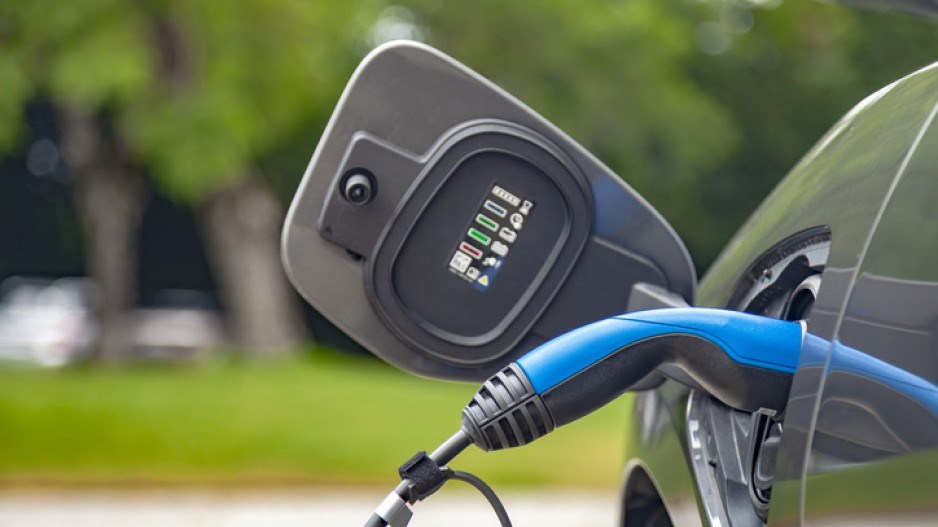In May 2019, the provincial government – at the time, in a minority headed by the BC New Democratic Party and buttressed by the BC Green Party – passed the original
Zero-Emission Vehicles Act. The goal of the legislation was to ensure that all light-duty cars and trucks sold in British Columbia by 2040 would be “zero emission.”
The notion of moving the population toward electric cars was welcomed by most of the province’s residents. In surveys conducted by Research Co. and Glacier Media, the likelihood of the next vehicle purchase from drivers in British Columbia being “zero emission” started at 51 per cent in 2019, rose slightly to 53 per cent in 2021 and reached 59 per cent in 2022.
In April 2022, 73 per cent of the province’s residents supported the Zero-Emission Vehicles Act. For more than half of British Columbians (53 per cent), the goal established by the provincial government was “achievable.”
Over the past nine months, the situation has changed. In October, the provincial government amended the Zero-Emission Vehicles Act, effectively phasing-out the sale of gas-powered light-duty cars and trucks by 2035 – five years earlier than originally envisioned. This brought the provincial legislation in tune with the federal government’s own target, giving customers and industries exactly 11 years to “go electric.”
When we asked British Columbians about these amendments last week, there is an evident sense of panic from some residents. Agreement with the new 2035 deadline established by the provincial government to make all light-duty cars and trucks sold in the province “zero emission” stands at 57 per cent, a 16-point drop from what was observed in 2022 under the original 2040 date.
Disagreement with the provincial government’s policy jumped from 20 per cent to 37 per cent under the new 2035 goal. Put differently, about one in six British Columbians went from defenders of the move to “zero emission” to antagonists.
Skepticism also increased on the question about the feasibility of the policy. This month, only 37 per cent of British Columbians think the goal of full “zero emission” vehicle sales by 2035 is “achievable,” down 16 points since April. For the first time, most British Columbians (54 per cent, up 15 points) believe the goal, for 2035, is “not achievable.”
The new date also affected public sentiment on future sales. This month, 50 per cent of drivers say it is likely that the next vehicle they acquire for themselves or their household (even if the transaction is still years away) will be electric – nine points lower than in April 2022.
The province’s drivers aged 18 to 34 are more likely to foresee an electric vehicle as their next purchase (58 per cent) than those aged 35 to 54 (51 per cent) and those aged 55 and over (45 per cent). On a regional basis, we only see a majority of drivers in Metro Vancouver (58 per cent) expecting their next car to be “zero emission.” The proportions are lower in the Fraser Valley (49 per cent), Southern B.C. (48 per cent), Vancouver Island (45 per cent) and Northern B.C. (42 per cent).
When drivers are asked what would make them less likely to consider purchasing an electric vehicle in the future, the main hindrances continue to be cost (58 per cent), fear of becoming stranded (47 per cent), not having enough places to charge the vehicle in the areas where they usually drive (45 per cent) and not having a place to charge the vehicle where they currently live (40 per cent).
The striking contrast on this question is seen with drivers aged 55 and over. Most members of this group would be deterred from pursuing an electric vehicle because it is too expensive compared to non-electric options (64 per cent), imagine a tough time finding charging stations (59 per cent) and do not currently see charging stations in the places where they usually drive (54 per cent).
The survey’s results outline the unique challenge that the provincial government faces in the move to zero-emission personal transportation. With the deadline looming, residents are becoming more skeptical that the goal is achievable and just over half actually see themselves purchasing an electric vehicle at the next available opportunity – a significant drop from the enthusiasm expressed in 2022.
The campaign must now move beyond environmental awareness to address concerns about infrastructure and feasibility. B.C.’s oldest drivers are significantly more concerned about costs and charging stations than their younger counterparts. Engaging with this demographic will be crucial for the success of the pledge.
Mario Canseco is president of Research Co.
Results are based on an online study conducted from Jan. 8-10 among 800 adults in B.C. The data has been statistically weighted according to Canadian census figures for age, gender and region in British Columbia. The margin of error is plus or minus 3.5 percentage points, 19 times out of 20.





